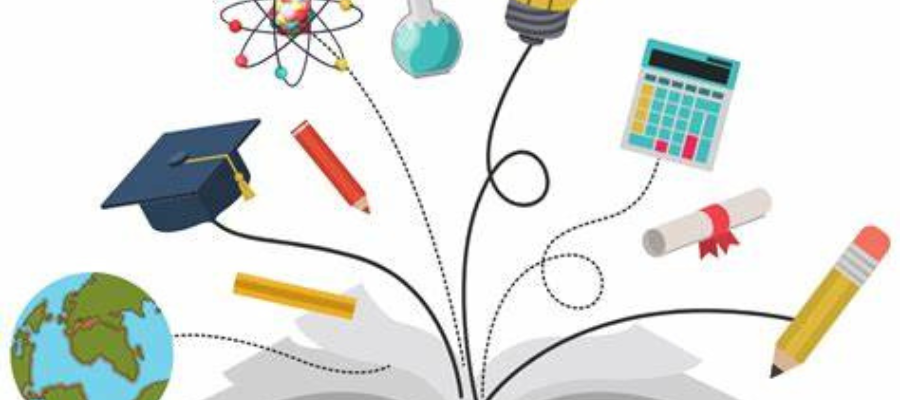Developing Research and Critical Thinking Skills


Building good research and critical thinking abilities is more important than ever in the information-rich world of today. Are you having trouble telling fact from fiction because of the never-ending barrage of data? You’re not by yourself. Many people are unable to adequately traverse the waters of knowledge and end up drowning in it.
Imagine, however, being able to reliably sort through enormous volumes of data, evaluate complicated problems critically, and express your ideas precisely and clearly. These are life skills that can help you advance in your job, personal development, and decision-making processes; they are not merely academic abilities. Gaining proficiency in research and critical thinking might be your secret weapon in a world that is becoming more and more competitive, regardless of your status as a student, professional, or lifelong learner. We’ll go into great detail about the key elements of honing these vital abilities in this blog post.
Understanding Research Skills
Defining Research and its Importance
The methodical examination and interpretation of data in order to increase knowledge and comprehension is known as research. In today’s information-rich world, it’s an essential talent that helps people handle complicated problems and make well-informed decisions. Research abilities are critical for academic achievement, professional advancement, and personal development.
Key Components of Effective Research
A number of essential elements are involved in effective research. First, it’s critical to locate trustworthy sources. This involves assessing the reliability of writers, journals, and websites. Second, researchers can effectively manage large amounts of data by cultivating excellent information literacy skills. Third, making meaningful conclusions is aided by critical analysis of the material obtained. Last but not least, integrity in research depends on ethical factors like accurate citation and avoiding plagiarism.
Developing a Research Mindset
Developing a research mindset involves approaching learning with curiosity and analysis. It entails posing insightful queries, refuting presumptions, and looking for evidence-based responses. It takes perseverance, patience, and a readiness to consider different viewpoints to cultivate this mindset. A robust research attitude also includes accepting uncertainty and seeing failures as teaching moments.
People can improve their critical thinking skills and become better problem solvers in both their personal and professional life by being proficient in these research techniques.
Mastering Information Gathering Techniques
A. Identifying Credible Sources
It’s critical to separate trustworthy information from false information in the digital era. Start by assessing the publication’s standing and the author’s qualifications. Seek out reputable academic institutions, peer-reviewed journals, and well-known authorities in the topic. To guarantee accuracy and dependability, cross-reference data from several sources.
B. Effective Online Search Strategies
Use Boolean reasoning and sophisticated search operators to hone your internet search abilities. Use “site:” to search for certain websites, “filetype:” to locate specific document kinds, and quote marks for exact phrases. Learn how to use specialized search engines for academic content, such as Google Scholar.
C. Utilizing Academic Databases
Reliable information can be found in abundance in academic databases. Learn how to use resources such as Web of Science, PubMed, and JSTOR. You can filter results by publication date, subject area, or methodology using the advanced search options that these databases frequently offer. Use your institutional affiliations to access these materials, as many libraries offer free access.
D. Conducting Interviews and Surveys
Unique insights can be obtained through primary research using surveys and interviews. Prepare thoughtful questions in advance and engage in active listening during the interview process. Make sure your survey questions are objective, unambiguous, and intended to generate insightful answers. Think about utilizing SurveyMonkey or Google Forms for effective data collection and analysis.
Gaining proficiency in these methods will enable you to perform in-depth research and establish a strong basis for critical thinking.
Enhancing Critical Thinking Abilities
Analyzing Information Objectively
The first step in critical thinking is to examine information objectively. Consider the merits of the data, not your biases. Before making judgments, carefully consider the evidence and practice distinguishing facts from views.
Recognizing Bias and Logical Fallacies
Gain the capacity to recognize different kinds of bias in arguments and sources. Learn about typical logical fallacies, like false dichotomies and ad hominem attacks. You can distinguish between stronger and weaker arguments with the use of this knowledge.
Developing Evaluative Reasoning
Develop your ability to evaluate the accuracy, applicability, and importance of information. Develop your ability to evaluate the available data, take into account many viewpoints, and reach well-informed conclusions after conducting thorough research.
Practicing Reflective Thinking
Take the time to regularly reflect on your own cognitive processes. Consider opposing views, challenge your presumptions, and be receptive to changing your thinking in the face of strong evidence.
You’ll improve your research skills and professional advancement in general by developing these critical thinking talents.
Implementing Effective Note-Taking Strategies
Organizing Research Findings
Think about employing a hierarchical structure when arranging your research findings. Begin with general subjects and work your way down to more granular details and subtopics. When necessary, this method enables rapid information retrieval and simple navigation. You may also categorize certain themes or sources by color-coding or tagging your notes, which will make it simpler to find connections and trends in your research.
Summarizing Key Points
Effective note-taking requires mastering the art of summarizing. Concentrate on succinctly expressing the key points and illustrative information. To make difficult information easier to understand, use bullet points or brief words. In addition to saving time, this exercise strengthens your comprehension of the subject matter, encouraging improved memory and critical thinking.
Using Digital Tools for Note Management
There are several tools available to help you take notes more efficiently in the current digital era. With features like cloud synchronization, labeling, and search capabilities, apps like Evernote, OneNote, or Notion make it simpler to arrange and retrieve your notes across devices. In order to create an extensive study repository, these applications frequently offer the ability to connect files, photos, and online links.
By putting these useful note-taking techniques into practice, you’ll improve your capacity to absorb and remember information, which will ultimately strengthen your research and critical thinking abilities.
Cultivating Analytical Writing Skills
Structuring Arguments Logically
To effectively communicate complicated ideas, analytical writing needs to follow a clear and logical format. Start by summarizing your primary ideas and arranging them in a logical order. To facilitate seamless transitions between concepts, introduce each paragraph with a topic sentence. This logical flow makes it easier for readers to follow your argument and supports your analysis as a whole.
Supporting Claims with Evidence
Always provide strong proof to support your claims in analytical writing to increase its credibility. Data, statistics, professional judgments, or pertinent instances might all be included. When providing evidence, describe its importance and how it bolsters your claim. This exercise not only supports your argument but also shows that you can think critically.
Synthesizing Information from Multiple Sources
Integrating data from multiple sources is frequently necessary for effective analytical writing. Gain the capacity to recognize recurring themes, inconsistencies, and gaps in various materials. When synthesizing, contrast and compare several points of view and describe how each adds to your analysis as a whole. This talent demonstrates your capacity to comprehend intricate data and draw well-rounded conclusions.
Developing a Unique Perspective
Building on prior information is important, but analytical writing should also add something fresh to the discussion. By challenging presumptions, taking into account other theories, and investigating unusual concepts, you can promote innovative thought. Your distinct viewpoint, based on in-depth investigation and critical evaluation, can provide insightful information and showcase your analytical abilities.
By developing these analytical writing techniques, you’ll strengthen your critical thinking talents in addition to your capacity to express complicated concepts clearly. Both academic and professional contexts benefit greatly from these abilities, especially those that call for in-depth analysis and problem-solving.
Critical thinking and research abilities are essential for both professional and personal development. You can greatly increase your analytical skills by being proficient in information gathering methods, developing your critical thinking skills, and putting good note-taking practices into practice. Gaining proficiency in analytical writing enhances your capacity to effectively and convincingly convey complicated concepts. Aara Consultancy provides Career Counseling, Profile Building, Abroad Counseling, Test prep and more, do contact for more details.
As you continue honing these abilities, keep in mind that their real worth comes from using them in practical situations. The capacity to conduct in-depth study and exercise critical thought will be useful to you whether you’re addressing academic obstacles, making crucial decisions, or resolving issues in your professional life. You will be better able to handle the intricacies of our information-rich environment if you make it a priority to practice and hone these skills on a regular basis.
We provide 360° Solution for your Education Needs. Contact us






